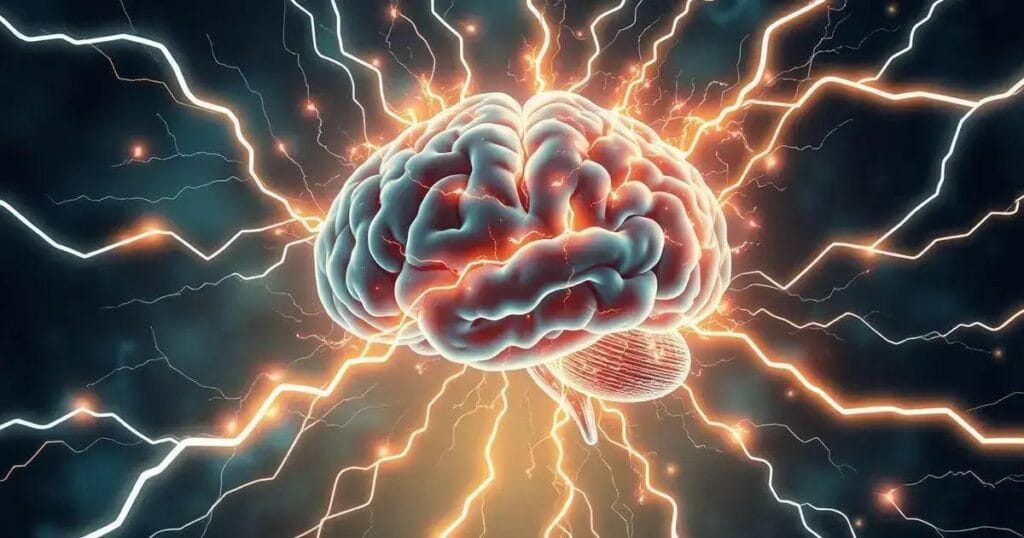Brain zaps are alarming sensations often described as sudden electrical shocks in the brain. These phenomena can occur during medication withdrawal or changes, affecting many individuals.
In this article, we’ll delve into the aspects of brain zaps, discussing their causes, symptoms, and potential treatments.
Understanding these sensations can help those affected find relief and navigate their experiences better.
Content
ToggleUnderstanding Brain Zaps
Brain zaps are sudden, brief sensations that many people liken to electric shocks passing through the brain. They can be surprising and sometimes scary.
Though commonly experienced during medication withdrawal, understanding what they are is essential.
What Are Brain Zaps?
Brain zaps occur as involuntary electrical disruptions in the brain. They can feel like a quick jolt or a flick of energy.
Many individuals describe them as a “whooshing” noise in their heads or a sensation of dizziness.
Are Brain Zaps Dangerous?
Generally, brain zaps are not considered dangerous. They are not linked to any serious medical conditions but can be uncomfortable. Most people will find that the sensation lessens over time.
Who Experiences Brain Zaps?
Brain zaps mostly occur in people who have recently stopped taking certain medications, especially antidepressants.
However, even those who haven’t taken medication can sometimes experience similar sensations due to anxiety or stress.
Most importantly, if brain zaps are frequent or severe, it’s crucial to consult a healthcare professional. They can help determine if further action is necessary.
Common Causes of Brain Zaps
There are several common causes of brain zaps that individuals may experience. Understanding these triggers can help in identifying and managing them effectively.
1. Medication Withdrawal
One of the leading causes of brain zaps is the withdrawal from certain medications, especially antidepressants. If a person stops taking these drugs suddenly, they may experience brain zaps as the body adjusts to the absence of medication.
2. Changes in Dosage
Similarly, when individuals change their dosage of these medications, either by increasing or decreasing, brain zaps might occur. This adjustment can disturb the brain’s normal signaling processes.
3. Stress and Anxiety
Brain zaps can also be linked to high levels of stress and anxiety. These emotional states can affect brain chemistry, leading to sensations that feel like electrical jolts.
4. Caffeine and Stimulants
Consuming excessive amounts of caffeine or other stimulants may trigger brain zaps in some people. These substances heighten the nervous system, which in turn can lead to electrical sensations.
5. Sleep Disturbances
Lack of sleep or frequent disturbances during sleep can also contribute to brain zaps. Proper rest is critical for the brain’s function and absence can lead to unusual sensations.
If any of these causes resonate, it’s essential to monitor the occurrences and consult a healthcare provider for guidance. Identifying the trigger may help in preventing these startling sensations.
Effective Treatments for Brain Zaps
Finding effective treatments for brain zaps can help reduce their occurrence and manage any discomfort associated with them.
1. Gradual Medication Changes
If brain zaps are linked to medication, it’s essential to talk to a doctor about changing dosages gradually rather than stopping suddenly. This can help minimize withdrawal effects.
2. Consulting a Healthcare Provider
Seeing a doctor or mental health professional can provide valuable insights into managing brain zaps. They may suggest switching to another medication with fewer withdrawal side effects.
3. Stress Management Techniques
Practicing stress management techniques such as meditation, yoga, and deep breathing exercises can help reduce anxiety levels. Lowering stress can decrease the likelihood of experiencing brain zaps.
4. Limiting Stimulants
Reducing or eliminating caffeine and other stimulants can also help. These substances can heighten alertness but may contribute to brain zaps in sensitive individuals.
5. Ensuring Adequate Sleep
Getting enough sleep is crucial for brain health. Aim for 7-9 hours of quality sleep per night to help prevent disturbances that lead to brain zaps.
6. Hydration and Nutrition
Staying well-hydrated and consuming a balanced diet rich in vitamins and minerals can support overall health. Proper nutrition may help in stabilizing brain functions and reducing zaps.
Keeping an eye on triggers and incorporating these treatment options can help manage brain zaps effectively. Always consult a healthcare provider before making changes to medication or lifestyle.
In Summary: Understanding and Managing Brain Zaps
Brain zaps, often experienced as sudden electrical sensations in the brain, can be alarming but are usually not dangerous.
Understanding their common causes, such as medication withdrawal, stress, and sleep disturbances, can help individuals identify triggers.
Effective treatments, including gradual medication changes, stress management techniques, and maintaining a balanced lifestyle, can significantly reduce the occurrence of brain zaps.
Consulting with healthcare providers offers personalized strategies for managing these sensations.
While brain zaps can be uncomfortable, awareness and proactive management make it possible to navigate through them effectively.
FAQ – Frequently Asked Questions about Brain Zaps
What are brain zaps?
Brain zaps are sudden, brief sensations that feel like electrical jolts in the brain, often experienced during medication withdrawal or high stress.
Are brain zaps dangerous?
Generally, brain zaps are not dangerous and are usually not linked to serious medical conditions, but they can be unsettling.
What causes brain zaps?
Common causes include medication withdrawal, changes in dosage, stress and anxiety, high caffeine intake, and sleep disturbances.
How can I treat brain zaps effectively?
Effective treatments include gradual changes to medication, consulting a healthcare provider, stress management techniques, and ensuring adequate sleep.
Should I consult a doctor about brain zaps?
Yes, if brain zaps are frequent or bothersome, it’s essential to consult a healthcare provider for guidance and to rule out other issues.
Can lifestyle changes help with brain zaps?
Absolutely! Stress management, a balanced diet, and proper hydration can contribute to reducing the frequency of brain zaps.



